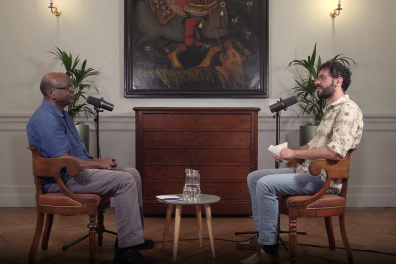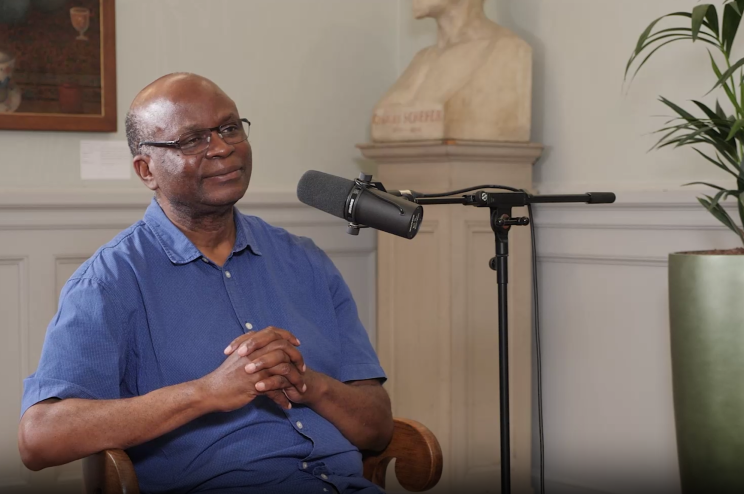Meet Rémy Bazenguissa-Ganga, African socio-anthropologist (EHESS)

The "Portraits of Researchers in Area Studies" (PEA) collection is a series of large-format interviews produced by Inalco as part of the Language and Cultural Area Studies (LaCAS) project. Deposited on the MediHal open archive, this series of portraits joins a set of collections on the LaCAS platform. These collections aim to build a living, freely accessible scientific heritage of research on the world's languages, societies and cultures.
Large-format portrait
Video: A political sociology of the Congo. An interview with Rémy Bazenguissa-Ganga (EHESS)
An interview conducted by Bastien Sepúlveda, in charge of Digital Humanities (DIRVED, Inalco), directed by Dimitri Galitzine, produced by Inalco (2024, 1 hr 43 min).
Podcast:

Rémy Bazenguissa-Ganga is Director of Studies at EHESS and a member of the Institute of African Worlds (IMAF, UMR 8171 - CNRS / UMR 243 - IRD). In this interview, he presents his research on the history of the political field in the Republic of Congo. He insists specifically on the importance of the electoral fact, which he places within a broader reflection on the question of conflicts and political violence, and which he analyzes in particular on the scale of the Congolese capital, Brazzaville.
Rémy Bazenguissa-Ganga holds the Chair "Guerre et politique à l'épreuve de l'Afrique. Anthropological approaches" at EHESS. His work in Congo, South Africa and France focuses on mobilities, elections, wars and epistemologies of and/or from the Suds.
He has published, among others: Les voies du politique au Congo. Essai de sociologie historique (Karthala, 1997); Congo-Paris: Transnational Traders on the Margins of the Law (with MacGaffey J., London,James Currey & Indiana University Press, 2000); L'Afrique des banlieues françaises (with M. Agier, Editions Paari, 2012); Sociétés en guerres. Ethnographies des mobilisations violentes (with Sami Makki, MSH Editions, Collection Colloquium, 2013).
He is also the bearer and director of the ELEQTA project (Re-examining elections after African experiences), the digital platform for an anthropology of elections.